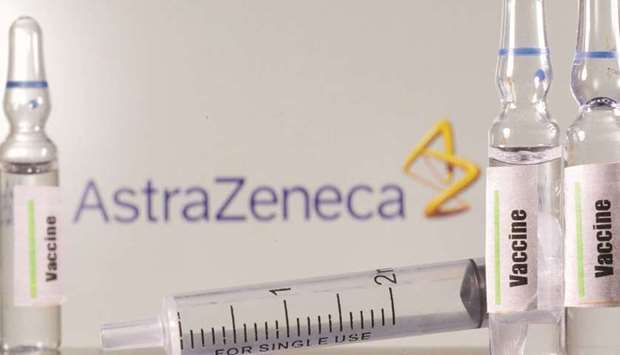Australia has asked the European Commission to review its decision to block a shipment of AstraZeneca’s Covid-19 vaccine and Japan is investigating the matter, as countries importing EU-made shots fear a potential impact on supplies.
The EU executive backed Italy’s decision to block a shipment of 250,000 doses of the AstraZeneca vaccine to Australia, several European officials said, in the first refusal of an export request since a mechanism to monitor vaccine flows was established in late January.
The move was a reaction to AstraZeneca’s delays in delivering vaccines to the EU, as the company said it could supply about 40mn doses of the 90mn foreseen in the contract for the first quarter of this year.
One official said the Anglo-Swedish firm had initially asked Rome to ship even more doses to Australia, but then cut its request to 250,000 after a first refusal by Italy, where some of AstraZeneca’s Covid-19 vaccines are bottled. “Australia has raised the issue with the European Commission through multiple channels, and in particular we have asked the European Commission to review this decision,” Australian Health Minister Greg Hunt told reporters in Melbourne.
Hunt said Australia, which began its inoculation programme two weeks ago, had already received 300,000 doses of AstraZeneca’s vaccine, which would last until local production of the vaccine ramps up. He added the missing doses would not affect the rollout of Australia’s inoculation programme. When asked about the EU’s export ban, Japan vaccine minister Taro Kono said: “We are asking the Ministry of Foreign Affairs to thoroughly investigate. We want to work with the Ministry of Foreign Affairs to secure the vaccines bound for Japan.”
AstraZeneca did not reply to a request for comment. Apart from the decision to block the shipment to Australia, the EU has authorised all requests for export since the scheme’s Jan 30 debut to March 1, which amounted to 174 requests for millions of shots to 29 countries, including Australia, Japan, Britain, the United Arab Emirates and Canada, an EU Commission spokeswoman said.
Almost all vaccines exported from the EU since the end of January are made by Pfizer and BioNTech, the head of the European Commission, Ursula von der Leyen, said last week, with much smaller amounts being exported by Moderna and AstraZeneca.
The EU set up the mechanism to monitor vaccine exports after drugmakers announced delays in their supplies to the 27-nation bloc. It is now planning to extend the scheme until the end of June after it expires on March 31, EU officials told Reuters .
When asked about Italy’s move, French Health Minister Olivier Veran said that Paris could do the same, although at the moment it produces no Covid-19 vaccines.
German Health Minister Jens Spahn said that drug manufacturers must honour vaccine supply contracts to Europe, but said Germany had not yet had any reason to stop shipments of shots produced domestically to other countries. While seeking the European Commission’s intervention, Australian Prime Minister Scott Morrison said he could understand reasons for Italy’s objection.
“In Italy people are dying at the rate of 300 a day. And so I can certainly understand the high level of anxiety that would exist in Italy and in many countries across Europe,” Morrison told reporters in Sydney.
Italy’s move came just days after Prime Minister Mario Draghi, who took office last month, told fellow EU leaders that the bloc needed to speed up vaccinations and crack down on pharma companies that failed to deliver on promised supplies. EU countries started inoculations at the end of December, but are moving at a far slower pace than many other nations, with officials blaming the slow progress in part on supply problems with key manufacturers.

